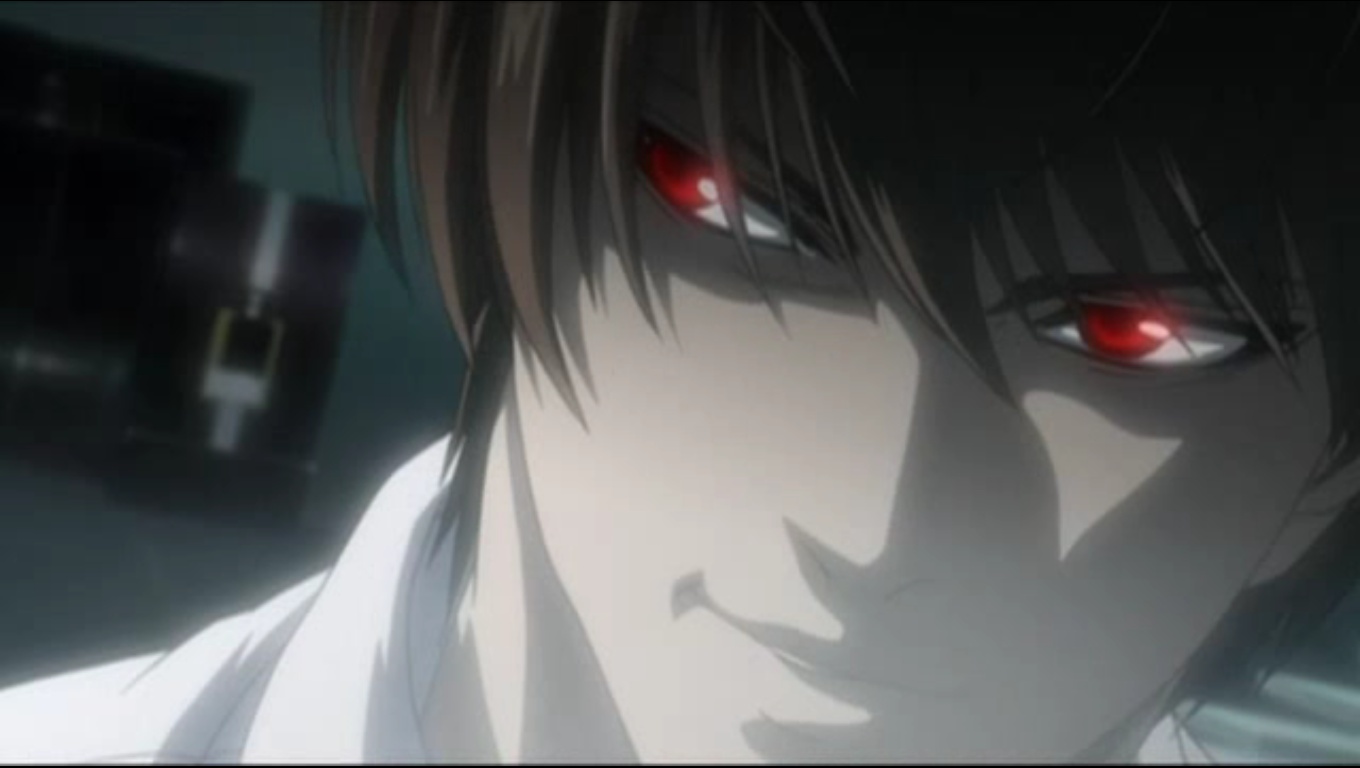TOM FRANCIS
REGRETS THIS ALREADY
Hello! I'm Tom. I'm a game designer, writer, and programmer on Gunpoint, Heat Signature, and Tactical Breach Wizards. Here's some more info on all the games I've worked on, here are the videos I make on YouTube, and here are two short stories I wrote for the Machine of Death collections.
Theme
By me. Uses Adaptive Images by Matt Wilcox.
Search

Death Note
Almost anything that features a master criminal fancies itself as a battle of wits between him and the star detective. In practice, all that usually means is the bad guy leaves no evidence, then blunders into an obvious trap by the cop. Death Note actually is a battle of wits, though: the entire series revolves around two people desperate to eliminate each other, but prevented from doing so directly by the complicated mathematics of suspicion, guilt and uncertainty.
It all stems from the Death Note: a book found by a sociopathic hyperintelligent schoolkid that will kill someone if you write their name in it. You have to be picturing their face, and you can specify the time and circumstances of their death. He starts using it to rid the world of violent criminals, but gets into such hot water so quickly that his immediate objective is mostly self preservation.
The detective is never entirely sure if it’s really him doing it, since the flexibility of the book lets him schedule killings of people he’s never met, by natural causes, at times he has a perfect alibi for. But nor can the villain find a good way to kill his rival and get away with it: the two keep manoeuvring so that the villain could always feasibly be innocent, and the detective cannot be safely killed.
It’s a terrifying mind game of questions.
“He’s asking me what the killer would do – do I answer accurately and risk looking like the killer, or throw him off and risk playing dumber than he knows me to be?”
“If he’s telling me that openly, does that mean he knows that I know, or is he trying to find out if I know he knows that I know?”
Luckily, the complexity is kept readable by a completely frank expositional dialogue style, where people actually say things like, “If this had happened sooner, it would have been bad for me!” and “Please could you explain a little better.” You’re forever wondering how the hell the series is going to last more than a couple of episodes further, because massive developments tighten the circle around these two players in almost every one. But it keeps finding clever ways to scupper the dominant player, and luck never sides with either of them too long.
I haven’t finished the whole thing yet, but I can say the first 24 episodes are essential brain fodder. Thanks to Graham and Lisa for recommending it in the pub the necessary five times for me to get around to checking it out. If you’re in the US, PleasingFungus points out that the whole series is available on Hulu for free.
More Brevity Week
